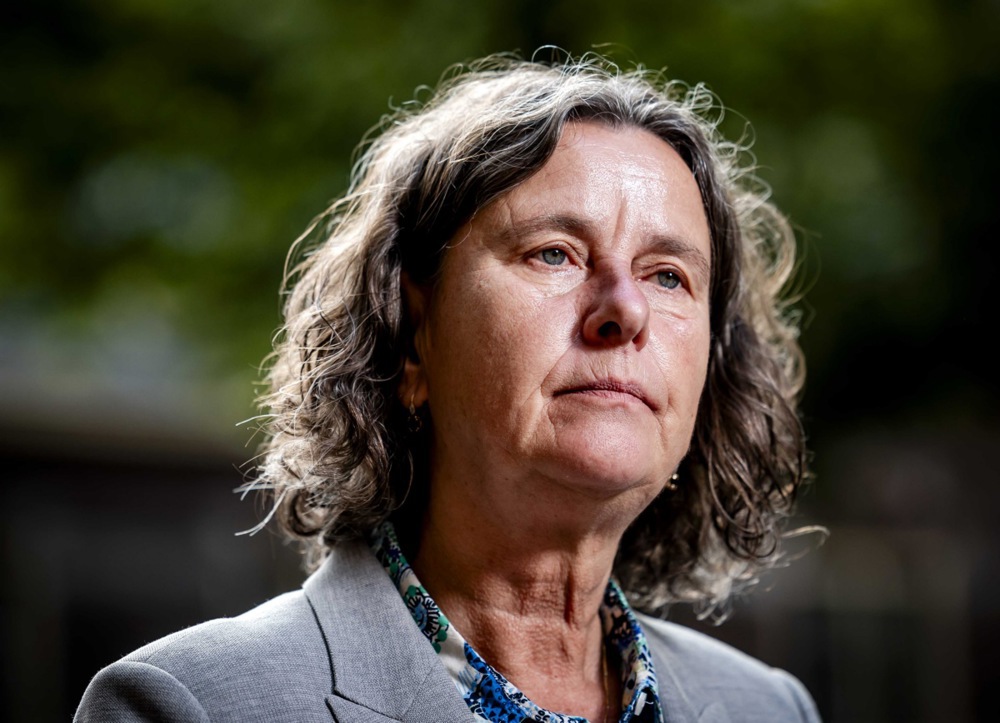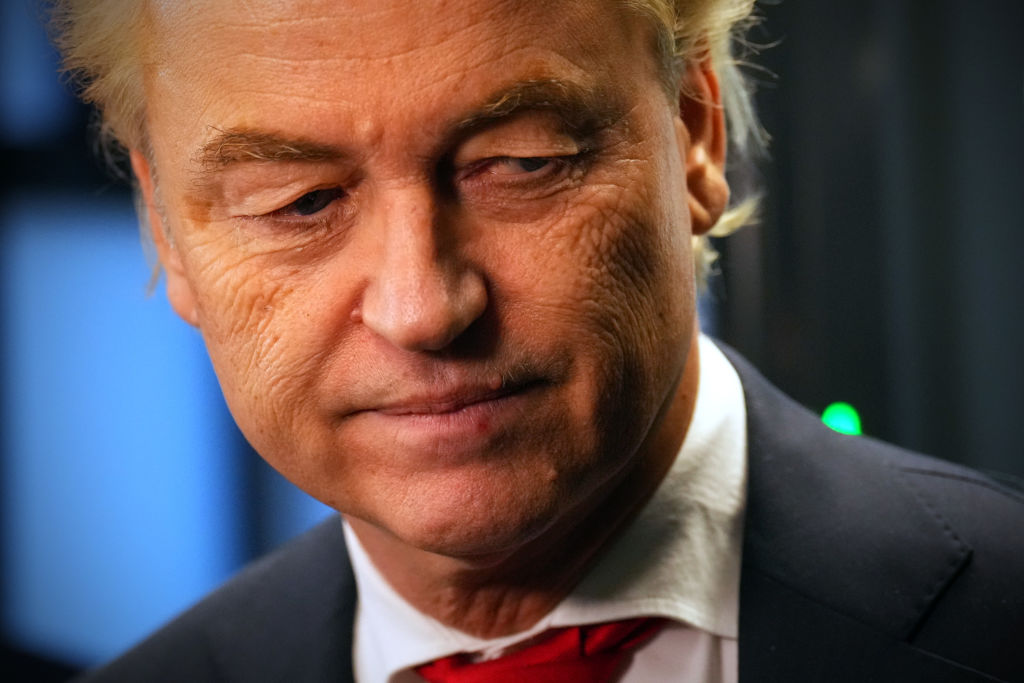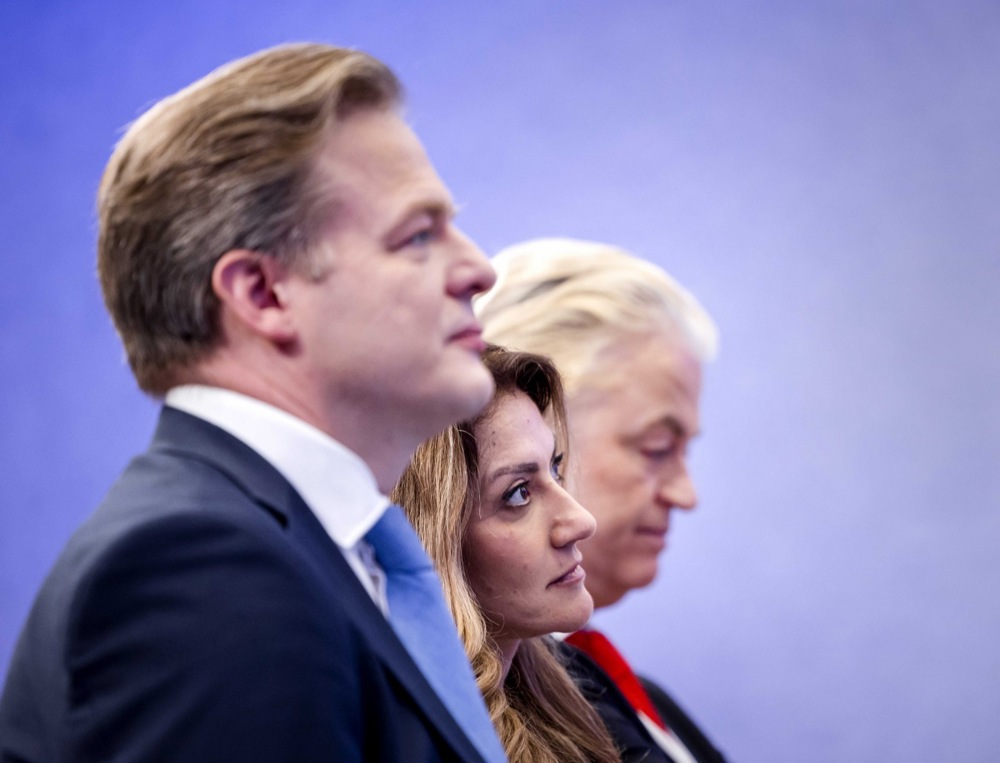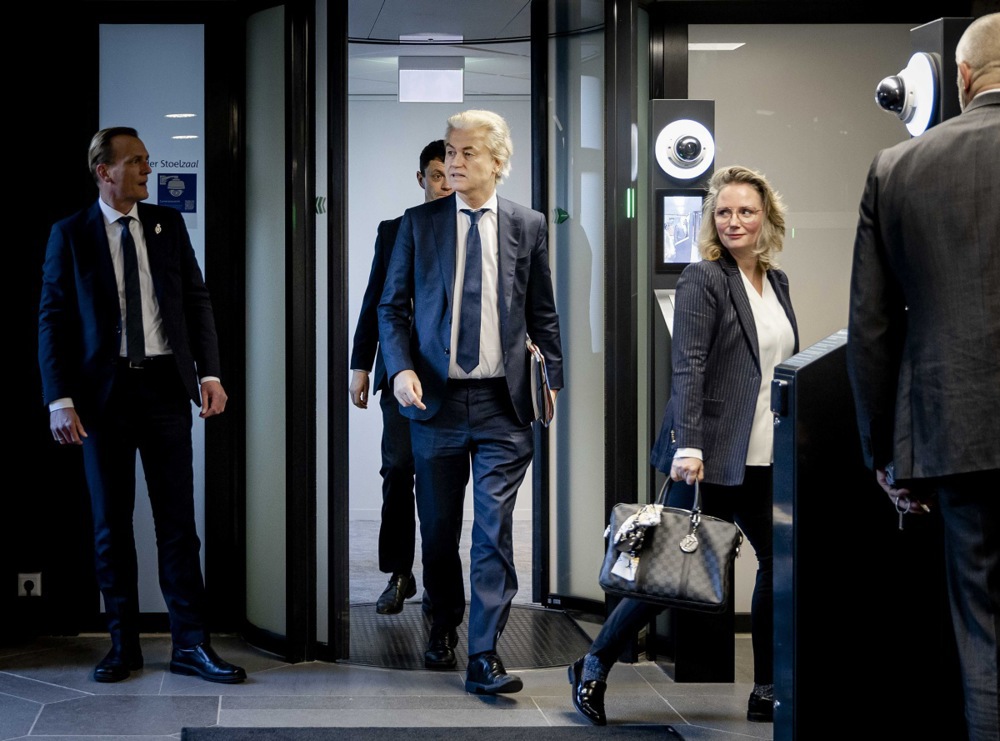The political leaders of the Dutch Government have found an agreement on tougher measures regarding asylum after an eight-hour meeting.
Under the agreement secured late on October 24, there will be several measures introduced to tighten migration policies but a so-called “asylum crisis” will not be invoked.
Geert Wilders’ Freedom Party (PVV) had been pushing for significant restrictions on mass migration and asylum for the Netherlands but had to compromise with his party’s coalition partners.
Asylum was the leading topic and the PVV first had to find common ground with the centrist NSC party, as both have tended to lock horns often. That agreement was the basis for the broader government consensus.
Following the lengthy parliament meeting, Wilders posted on X there was a deal.
We zijn eruit ?
— Geert Wilders (@geertwilderspvv) October 24, 2024
Despite not calling for official recognition of an asylum crisis, which would have enabled the government to take far-reaching measures, significant changes have been officially agreed upon.
As most of these, though, were already effectively accepted, observers said the meeting was something of a cosmetic exercise, designed to show governmental decisiveness.
Permanent residence permits for asylum seekers will be abolished. Instead, only temporary residence permits that have to be renewed will be available and the validity period of these will be reduced from five to three years.
The Netherlands will also introduce border controls at the end of November, based on Article 25 of Schengen Border Code.
Asylum seekers who have applied for asylum elsewhere are to be returned. Immigration detention centres will get extra cells while undocumented asylum seekers will be detained. The requirement for municipalities to offer homes to status holders will be cancelled.
Parts of Syria will be designated as “safe”, so migrants from there can be sent back. Residence permits for people from those designated safe areas may be revoked.
A contested “spreading law”, which has distributed refugees across the country, will be repealed before the end of this year.
Family reunification will be restricted with regards to adult children.
If refugees are convicted of criminal offences, they will more quickly face a “declaration of undesirability”.
These proposed measures will go through parliament and urgent advice will be sought from the Council of State.
On October 25, the deal was set to be discussed in the Council of Ministers. The cabinet will then make the plans public and respond to enquiries about them.
The Dutch Government has said it wanted to render parts of the immigration law inoperative in a bid to stem the high number of incoming asylum seekers. https://t.co/cMuYjTXt14
— Brussels Signal (@brusselssignal) September 13, 2024
PVV wanted to go further and halve the acceptance of asylum seekers while withdrawing from the UN Refugee Convention.
If the government had agreed on officially recognising an asylum crisis, measures could have been enacted without first having to be approved by the parliament. The current standard procedure will now remain in place.
Left-wing organisations and migration activists opposed the plans.
“The government is knowingly and deliberately disrupting the asylum system,” chairman of Refugee Council Netherlands Frank Candel told public broadcaster NOS.
He added that “any prospect of participating in society is being taken away” for recognised refugees.
Board member Maartje Terpstra of the Association of Asylum Lawyers said asylum seekers would now find it harder to integrate, learn the language and find work.
She added that tighter border controls would mean migrants will fall prey to people smugglers and would also facilitate “ethnic profiling”.
Some on the political Left attacked Wilders for having compromised on the issues, after previously having accused him of being extreme.
Wilders first had said he wanted to see serious changes and insisted he did not have a “banana spine”. Now, his political opponents have said he does.
Jan Paternotte, a left-liberal MP from the liberal D66, wrote a poem about Wilders and his “banana spine”.
This same allegation was also made by his fellow D66 members, former MP Sidney Smeets and current D66 party president Rob Jetten.
The biggest political issues for the NSC remains how it will act in future, having members who tend to side with the Left and are not happy in a right-wing government, and how it will deal with a significant drop in popularity.
Dutch asylum committee chairman resigns citing ‘not normal’ PVV-led government. https://t.co/B7f9kguazo
— Brussels Signal (@brusselssignal) June 25, 2024





